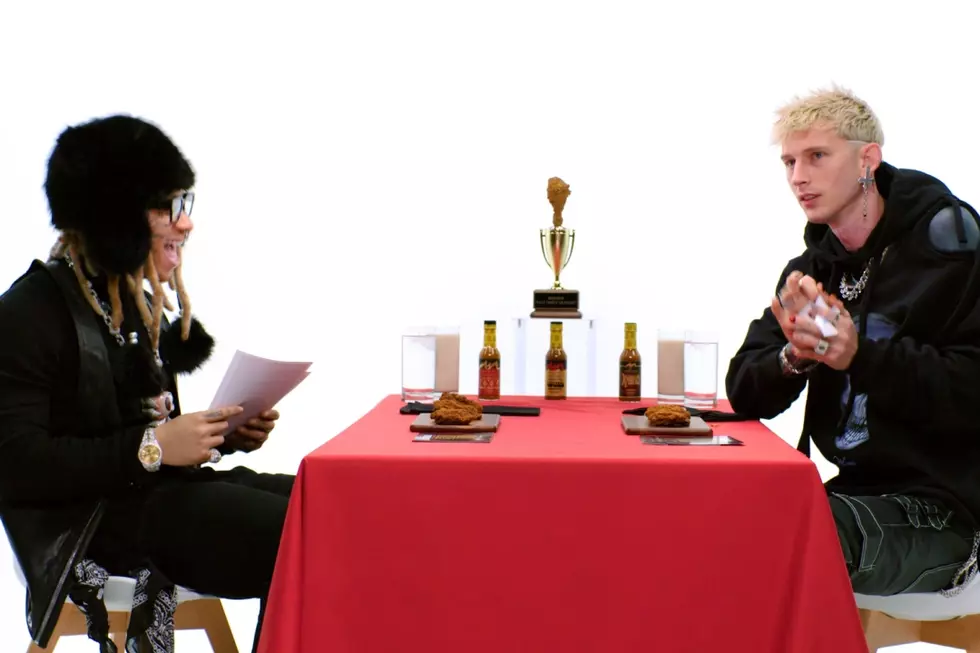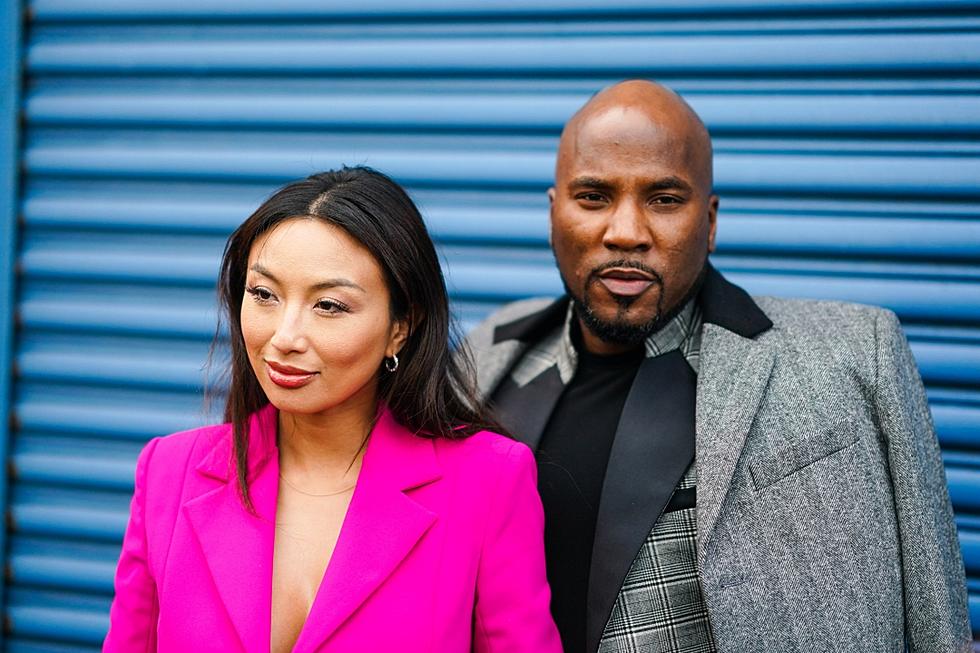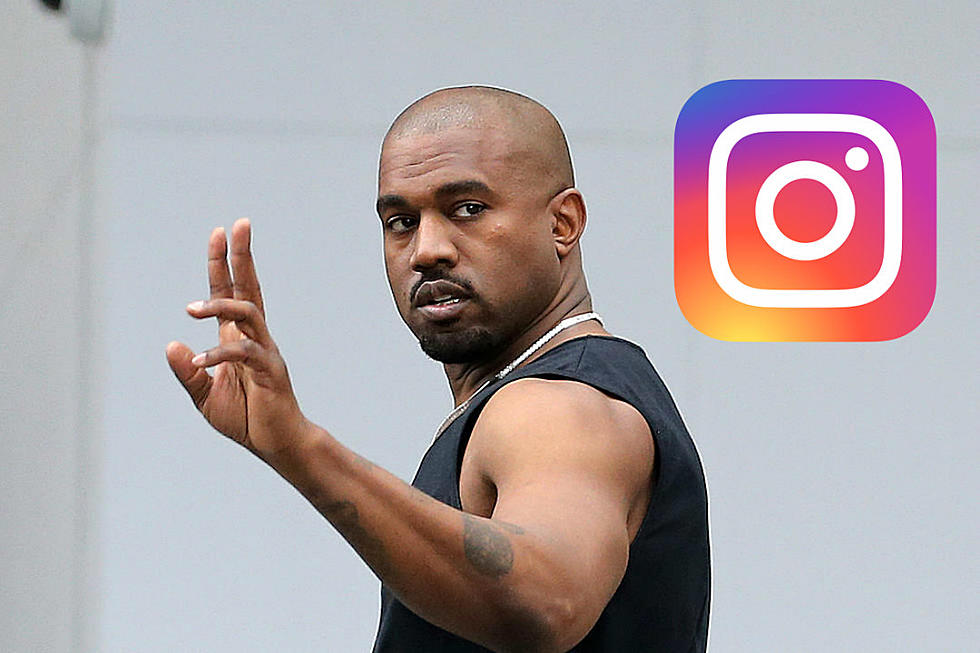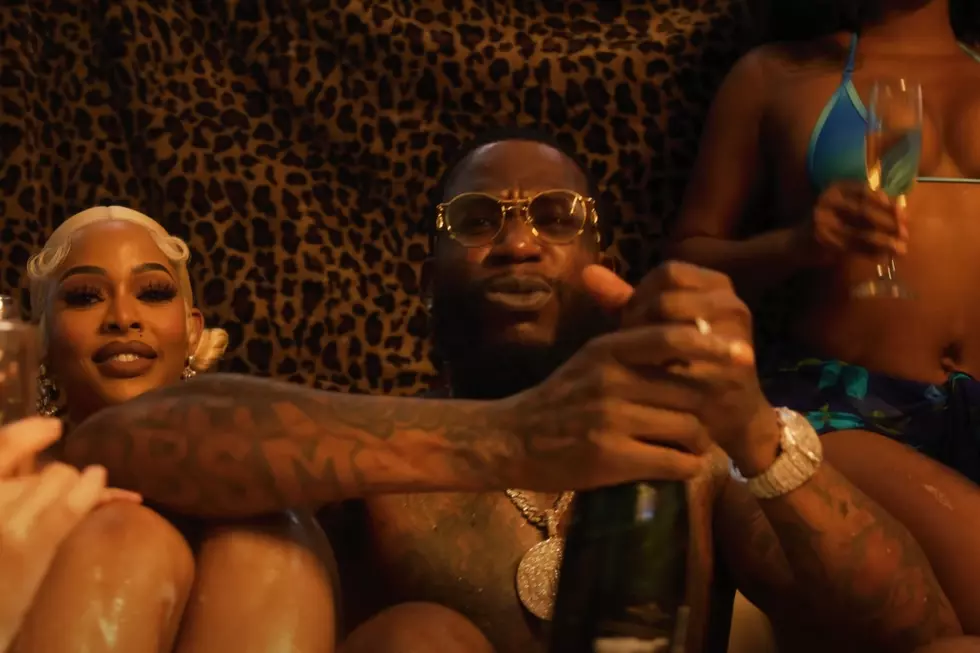will.i.am
Pop U

“Stucheeo.” It’s called “stucheeo.” That may not be how it’s spelled, but that’s beside the point. In reality, it’s “studio,” and probably spelled “s-t-u-d-i-o.” But at some point, the owner decided to put on a faux French accent and said, “I’m going to the stucheeo,” which was not really that good of a joke, he concedes, because they don’t say “chee” in France anyway. At any rate, the studio was first purchased in ’97, when the owner’s rap act signed its second major label record deal. “That whole studio shit, giving money to them niggas so they could build they equipment up?” says the owner. “I don’t fuck with that.”
The owner is will.i.am, the musical producer and de facto leader of polyethnic, multiracial, cross-gender, über-superstar hip-hop group the Black Eyed Peas. “I always tell people in our camp don’t be giving no money building other people’s studio. You need to save that money, buy a house, build your own studio with it,” he says. “You never know, tomorrow you may be dropped.” The reality of being dropped by a record label is one Will knows from firsthand experience. While he was still in high school, he was signed to gangsta rap pioneer Eazy-E’s Ruthless Records as part of the Atban Klann. But shortly after the original Compton G died from AIDS in 1995, Ruthless shelved the group’s debut album—which had already been advertised and reviewed in music magazines—and dissolved the professional relationship. Will, who dropped out of college (just two weeks into his freshman year) in order to rap, had been granted the contract on the strength of his freestyle and dance performances at local clubs. He was stuck—he had no idea how to properly solicit a new deal.
“I didn’t know how to shop demos,” he admits. His three-man crew had also changed one member, and now consisted of himself; his childhood friend Allen “apl.de.ap” Pineda; and Jaime “Taboo” Gomez, whom he met in L.A.’s underground hip-hop dance scene. They christened themselves Black Eyed Peas (they added “the” in 2003, when they recruited Stacy “Fergie” Ferguson, the former lead singer of the pop trio Wild Orchid) and, with the help of their engineer, began sneaking into Loyola Marymount University’s recording studio to make a demo. They pushed the demo to little avail, until an A&R guy gave them a piece of criticism that changed their direction. He said the music wasn’t bad; it just wasn’t “tangible.” “I didn’t know what ‘tangible’ meant,” says Will. “I’m just straight out of high school, I never used that word. So I looked ‘tangible’ up in the dictionary. It just means something you could hold on to. So I was like, ‘They want us to write hooky songs. That’s how we gonna get on.’”
Before then, the Peas’ music focused on wordplay and creative production—verses as opposed to songs, pieces as opposed to the whole. Then they crafted their first kinda-hit, “Joints & Jam,” which featured what Will calls a “hooky-ass hook.” They soon found themselves the center of a bidding war, with offers approaching seven figures. “For a backpack, underground L.A. band hip-hop group, they were offering us like a million bucks,” Will recalls, still in disbelief. The group opted to sign with Interscope’s A&M Records, not because they were offering the most ducats, but on the strength of Interscope cofounder Jimmy Iovine’s personal promise.
“Jimmy said, ‘You can sign with those dudes, Will. But if you don’t sell records, they’ll drop you.’” Will does an eerily accurate impersonation of Iovine’s nasally singsong. “‘You sign with me, no matter how many records you sell, you’ll always be able to put out records.’ I was like, ‘Really?’ [And he said,] ‘Promise you.’”
When the deal was closed, Will purchased the top floor of the stucheeo. Then he purchased the whole building piece by piece—both floors. Over the years, he’s decorated it in a sparse Asian motif and stocked it with state-of-the-art equipment. He spends his time here stuffing hard drives with gigabytes of beats—just in case. “In rock music, for some reason, they stay around forever,” he says. “In hip-hop, it’s like they had a hit two years and they audi. But the [Red Hot] Chili Peppers is still here. How does hip-hop get that?” William Adams was raised in the projects of East L.A. by a single mother who fostered his singular sense of style. Though his roots and allegiance are to hip-hop, his nonconformist attire might suggest otherwise. Sitting behind the control boards at his studio, a few days after his 31st birthday, Will looks like an aristocrat bohemian. His colorful straw porkpie hat is fashionably too small for his dreadlocks, his extra-medium plaid pants have zippers on the legs that serve no purpose, and nothing matches his patent leather BAPE sneakers—especially not his waist-length jacket. “It’s an army jacket that I flipped,” he says. “It’s like a kimono, in the same color scheme as camouflage, but I took the camouflage off the jacket and put a kimono. I ain’t trying to hide from nothing, so why am I camouflaging?”
William Adams was raised in the projects of East L.A. by a single mother who fostered his singular sense of style. Though his roots and allegiance are to hip-hop, his nonconformist attire might suggest otherwise. Sitting behind the control boards at his studio, a few days after his 31st birthday, Will looks like an aristocrat bohemian. His colorful straw porkpie hat is fashionably too small for his dreadlocks, his extra-medium plaid pants have zippers on the legs that serve no purpose, and nothing matches his patent leather BAPE sneakers—especially not his waist-length jacket. “It’s an army jacket that I flipped,” he says. “It’s like a kimono, in the same color scheme as camouflage, but I took the camouflage off the jacket and put a kimono. I ain’t trying to hide from nothing, so why am I camouflaging?”
DJ Premier, who produced “BEP Empire,” the opening track from the Peas’ 2000 LP, Bridging the Gap, says, “The Black Eyed Peas’ style may be different, but they come from the hardest gangbanging hoods that most guys would be scared to walk through. Yet they dress the way they do, and they’re not changing for anybody. They’re always going to do them.”
Camo or no, Will and co. are definitely not hiding. In fact, the group is in danger of overexposure like no hip-hop act since the Fugees. (Not so coincidentally, the Peas—who are often compared to the Fu Crew—are managed by David Sonenberg, the same man who orchestrated the Fugees’ worldwide success in the mid-’90s.) In just one week in February 2005, BEP opened both the Super Bowl and the Grammy Awards. Apple Computers, Honda, Dr. Pepper, the NBA and electronics chain Best Buy have all enlisted the group for endorsement deals. Chances are, even Shyne knows about the group.
Continue reading this feature in the July 2006 issue of XXL (#82).
More From XXL









